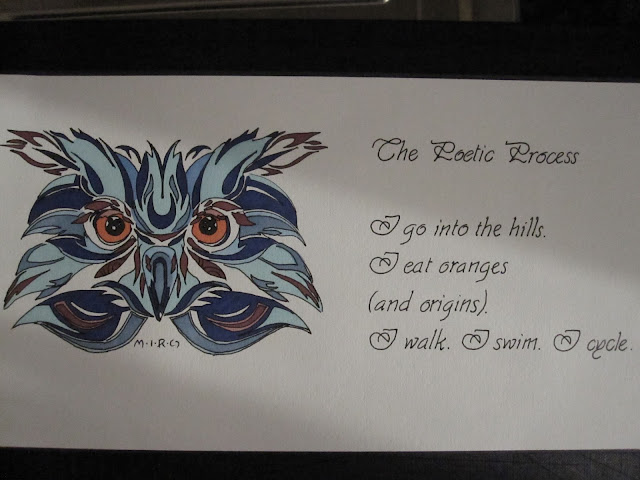Wendell Berry, An Entrance to the Woods
Show me where you live and and I will tell you who you are.
Ortega Y Gasset
Yesterday, whilst negotiating the landscapes of greater Glasgow I quickly realized that this is how your brain becomes rooted, how you become the land, how your tendrils and filaments eke out invisibly into places and spaces. In negotiating the land at a bodily level, and at a locomotive level, the land insinuates itself into you. Indeed, it is a reciprocal circum-cess: as you groove your self into the land, the land grooves itself into you. Until such a time as to fuse the two inextricably together.
Crossing country by bicycle or on foot requires the attention to detail that a city does not require. To be sure, a city is full of deadly hazards, but we have become so inured to them, that it is not really a matter of life and death at all. Walking alone in the countryside could not be more different. There is an element of danger simply by being on your own and in a space where no-one else is. Add to this, the uneven footing, the various types of land being crossed, from heath to bog to rock, and you have a brain that is working full steam ahead in figuring out the best way forward (or backward as the case may be). In a city, by contrast, one's brain atrophies with its fully standardized settings and homogenized spaces.
How man has learned to breathe in hell...
But man does not breathe, nor does he move. His breathing is done for him. It's called 'non-invasive ventilation'. He is hooked up to all manner of apparatuses that one might call 'life-support'. Tethered to all sorts of guy ropes and anchors - media networks and webs that do not connect but rather embed him incestuously within his own kind - man floats off, ungrounded and perverted, into the realm of fantasy.
Which only compounds a further reliance on science and technology to do it for him.
But as we all know, being hooked up to a machine that breathes for you is no kind of living.
The stupidity of modern man (a function of the stupor that glitzy modernity confers upon him) can in some part be put down to this loss of land-interaction and respiratorial transaction. The era of conveyance is a lot more dangerous than we think. It is in the words of the Romanian philosopher Emil Cioran, the road to metaphysical exile. In allowing his self to be transported man has lost his wits and werwithal, those parts of the mind that mix in intuition and instinct to render one fully animated and aware. Wendell Berry once wrote that people cannot change places as fast as their bodies can be transported. This ties in nicely with the old Arab saying that the soul can only go as fast as the pace of a trotting camel. There is a metaphysical disconnect in the act of being conveyed, which of course is a physical disconnect too. This is multiplied whenever we are carried to far-flung places. But this is the deviousness of capitalism, and of tourism: that the familiar is uninteresting, that one's place of nativity is by definition boring... and unlikely to instil within you the excitement and exoticism of an island in the Mediterranean.
A renewed openness to our customary places is required in order to see just how unfamiliar we are with those places. However, as long as we remain tethered to these incestuous life-denying networks, as long as we remain hermetically sealed behind screen and speed, and technology, our openness to place and space is simply not there.
'To be on the lookout' the French philosophe Gilles Deleuze once said is the mark of every animal, the measure of every philosopher and thinker. If you are not 'on the lookout' then you are not animated. And if you are not animated, then you are either in a state of cryogenic suspension, or in some sort of zombie-like stage of man's cocoon-like de-evolution.
Man, as Kant once wrote, is the only animal that has to work. He is also, as Berry implies in Life is a Miracle, the only animal that doesn't know where he is.
The beast of Duncarnock Mount. Try getting up its scrambly north-west face without paying severe attention to where you actually are. Then there's the whole human history attached to this once prestige stone age homestead to unravel.






